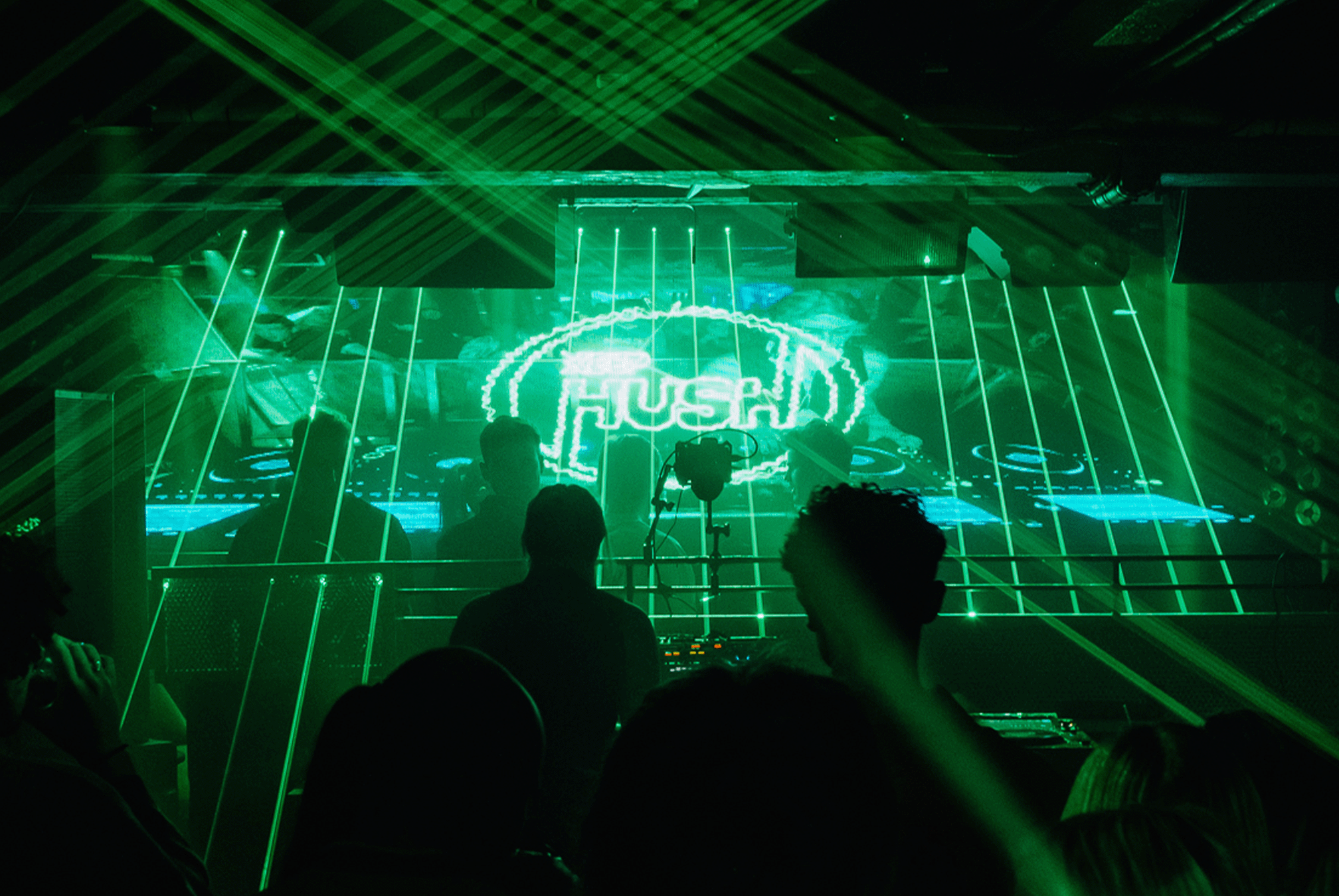 COMMENT
COMMENT
Keep Hush: International tours, local voices
Amidst the UK brands second foray across Australia & Aotearoa/New Zealand, they shared some words of wisdom on how to honour local movements rather than simply profiting from them.
In years gone by, internationally renowned promoters and brands were names shared by hearsay, the written word, an occasional holiday snap or shaky camcorder footage. For many, the advent of mobile phones has seen the overpublicising of dance music culture and the expansion of big brands across the seas.
These brands have, in many instances, been forced to reckon with the difficulty that comes with transplanting a reputation into an entirely different country and scene.
How can Berlin techno live anywhere other than Berlin, for example?
This globalisation of dance music culture has been no more evident than through live streams and recorded sets. COVID-19 did plenty to accelerate the rate at which fans were hungry for ‘content’, and that acceleration has also resulted in an even larger idolisation of and platforming of the DJ, most evident when a big international brand comes to your town and stacks the lineup with yet more international names.
In amongst all of that, however, it’s nice to be reminded that there are brands ready to pay homage to the local scenes that they’re lucky enough to work alongside.
Keep Hush, originally an underground music, streetwear and art blog that turned into an event series across the UK and Holland and now a globally recognised broadcast platform, is one such brand.
Originally comparable to the likes of Majestic Casual in its hosting of tracks by the likes of Swedish producer Gud and American rapper Rome Fortune, Keep Hush first started recording live streams back in 2016. From there, the brand has grown to the point where it’s regularly hosting streams across the globe, working with local promoters to bring together a lineup, crowd and sound system that feels authentic to each city.
Keep Hush recently visited Australia and Aotearoa/New Zealand, although not for the first time, and partnered with notable crews such as DUNJ, 188 Naarm, Positions, Twisted Frequency, Echo Train, Electric Circus, Taste Club, and The Vault.
Working with such respected local names, Keep Hush’s most recent tour has seen huge support from local scenes, particularly at a time when other international platforms have never been more scrutinised.
To celebrate the tour, Mixmag ANZ spoke with Keep Hush founder Freddy Masters.
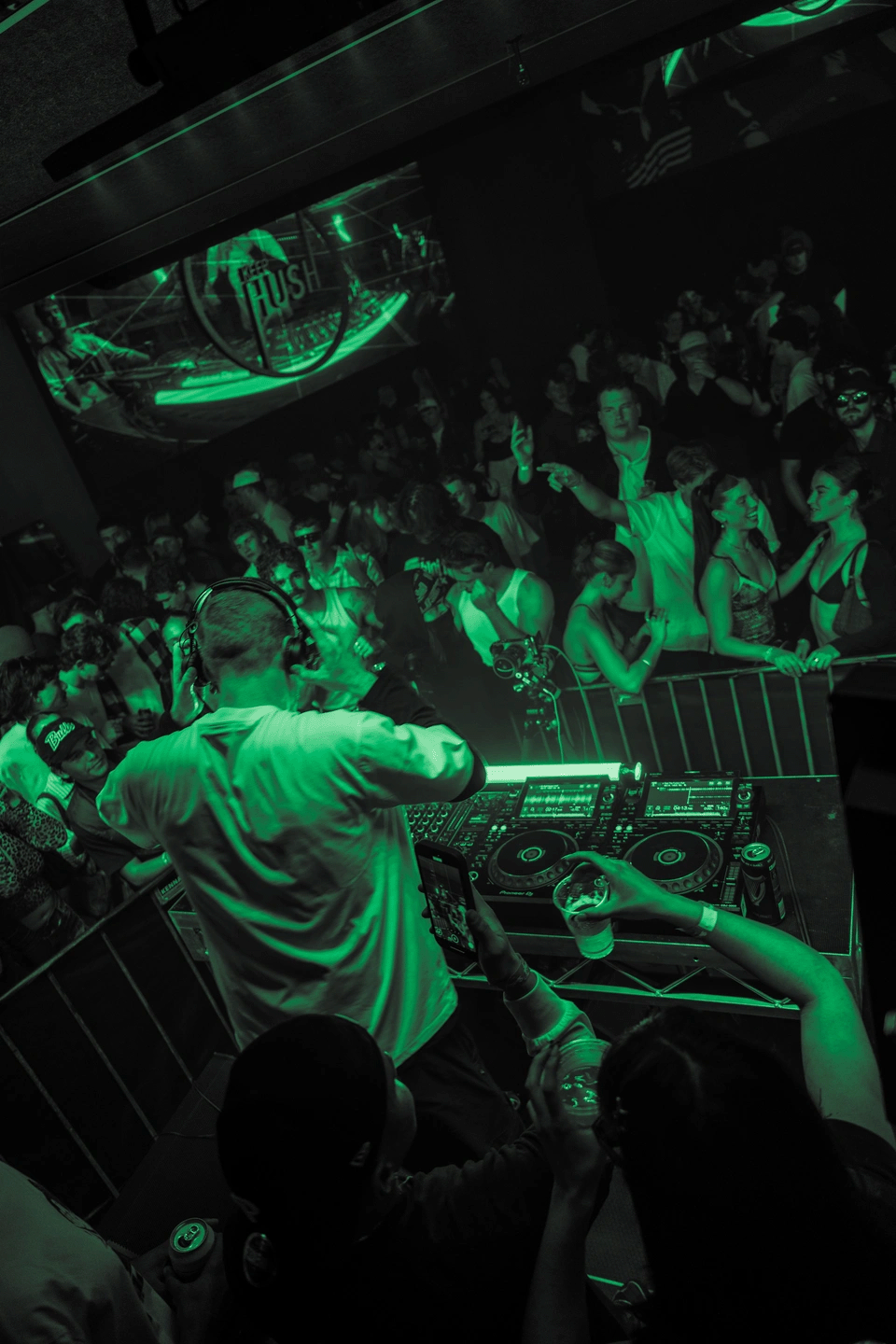
Q: Thanks so much for your time, Freddy. How does it feel to be back in the Southern Hemisphere?
FM: It feels great to be back. There are so many incredible artists and crews here, so it's amazing to be able to collaborate with them. Freddy also grew up in Aus, so it feels like a homecoming.
Q: This isn't the first time you've visited Australia or New Zealand. What keeps bringing you back?
FM: In short, it’s the scene in Aus/NZ that keeps bringing us back - both because we’re drawn to it and local crews have been reaching out to us. Whenever you have that organic energy, you have to follow it.
Q: This is the biggest tour you've had across the countries yet. Why did it feel right to have so many stops this time around?
FM: It is. We’ve dropped in and out of the area but never done a run like this before. This time we really wanted to get a sense of the different cities and scenes, while being able to tie it all together to our audience, hopefully we’re giving a uniquely broad snapshot into the area to the global audience of dance music fans that are watching Keep Hush sets.
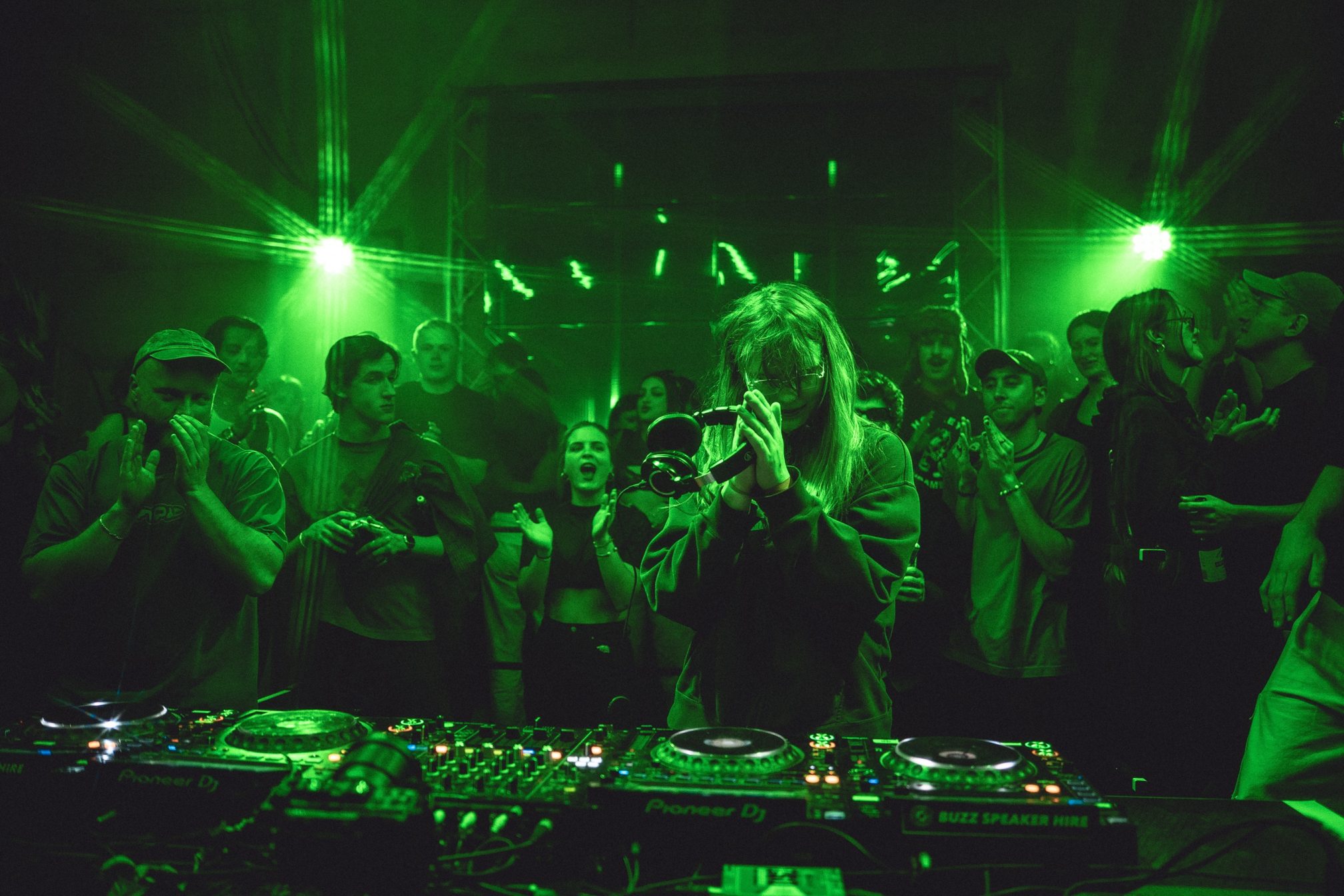
Q: DJ streaming platforms are a dime a dozen these days. How does it feel now to be in such a popular space?
FM: Yeah, it’s different - though it's empowered us to find our own lane more than ever. Many platforms seem to be tied to cities or venues, which has sent us the other way- the global approach is what’s really defining Keep Hush right now. It’s surreal to see what was a blog followed by a little project in a basement get so far around the world.
Q: Keep Hush has always struck me as a platform that really dedicates itself to different cities' scenes, and the people making them happen that may not exist in the mainstream. Why is that so important to the brand?
FM: Our ethos is to 'Back the Underground', and anyone with a grasp on music history knows that innovation is found in diverse pockets of underground scenes around the world. It's an honour to platform these scenes, wherever they are.
It’s important to us, essentially. It’s easy to get stuck in a bubble of major cities around the world, but that gets stale. We’re building a platform that helps you escape that bubble, offering insights into scenes that the typical dance music listener hasn’t seen yet.
Q: How does the Keep Hush team stay tapped into a city like Ōtautahi from the other side of the world?
FM: Our approach has always been pretty simple; it's about finding the right people and artists and trusting them. We can’t be fully tapped into Ōtautahi and wouldn’t want to pretend to be. But we can recognise when the right people have the same passion for dance music that we do.
We’re basically looking for music enthusiasts like ourselves from around the world.

Q: What do you think that partnering with local crews, like DUNJ, Echo Train Records, and Twisted Frequency, does for the scenes they come from?
FM: We hope it brings them to new audiences and helps them to execute a special event with us. We know a lot of programmers and music industry heads check out what we’re putting out, so we also hope it can bring opportunities, too. I think it works well as the local crews can bring something a little different to their audience for a special event, with long-term benefits.
Q: & how does that help Keep Hush, do you think?
FM: For us, it helps us get stuck into new cities and start learning about the scene there as a whole. Of course, the events bring new recordings to our platform without requiring us to send a whole team, which simply wouldn’t be possible.
Q: The recent worldwide boycott against Boiler Room and the more historical boycott of HOR Berlin has really cast a lot of rightful criticism on platforms that are popular due to the labour and success of the artists they feature. What do you feel that you owe to the artists who feature on Keep Hush?
FM: Our goal is to create a setting that allows a DJ or MC's artistry to thrive - ideally, a welcoming space where the crowd wants to dance, with excellent content captured in our DIY spirit. We owe a great deal to the artists who have contributed to the Keep Hush journey.
It has always been clear to us that we should only take investment from and partner with other companies that align with our values.
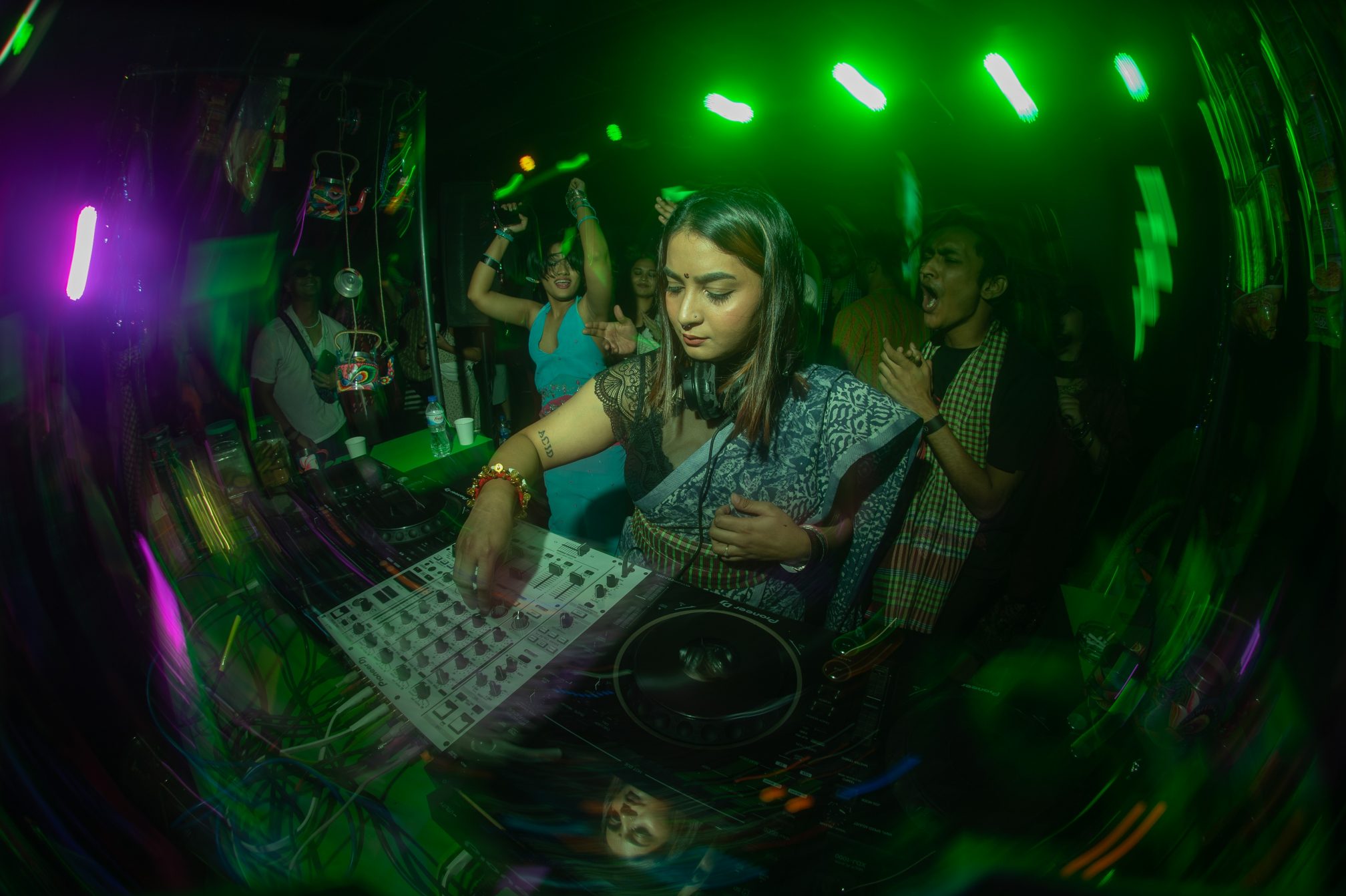
Q: What do you think that, as a global platform, you have to prove when working with local promoters & artists?
FM: We’re guests, so we’re looking to prove we can bring value in a few ways. The vibe of the night, the platform for the artists and crews, and an opportunity to run a successful event with us. We’re doing everything we can to get the balance right on this run of shows.
Q: What do you hope for the future of dance music more broadly?
FM: Dance music’s in a strange place right now. There are a few things we’re talking about a lot as a team. Firstly, we’re really admiring spaces that ban phones or cover their cameras at least. Elijah talks a lot about this and how we’re at an unprecedented level of being filmed in spaces where we really want to lose our inhibitions. I know Keep Hush films clubs - but at least the audience knows where the cameras are and chooses whether to be on them.
There’s also this huge trend of utilising non-club spaces for dance music events. Keep Hush started in the basement of an office - using space creatively when you can is essential. But at a time when small venues are closing in the UK at a terrifying rate, something feels off for some of the most popular events to be outside of that infrastructure of small venues that has traditionally supported dance music massively. If we lose those small venues, we’ll just end up with massive, investment-fuelled ones and “rave” pop-ups in cafes etc., sounds hellish.
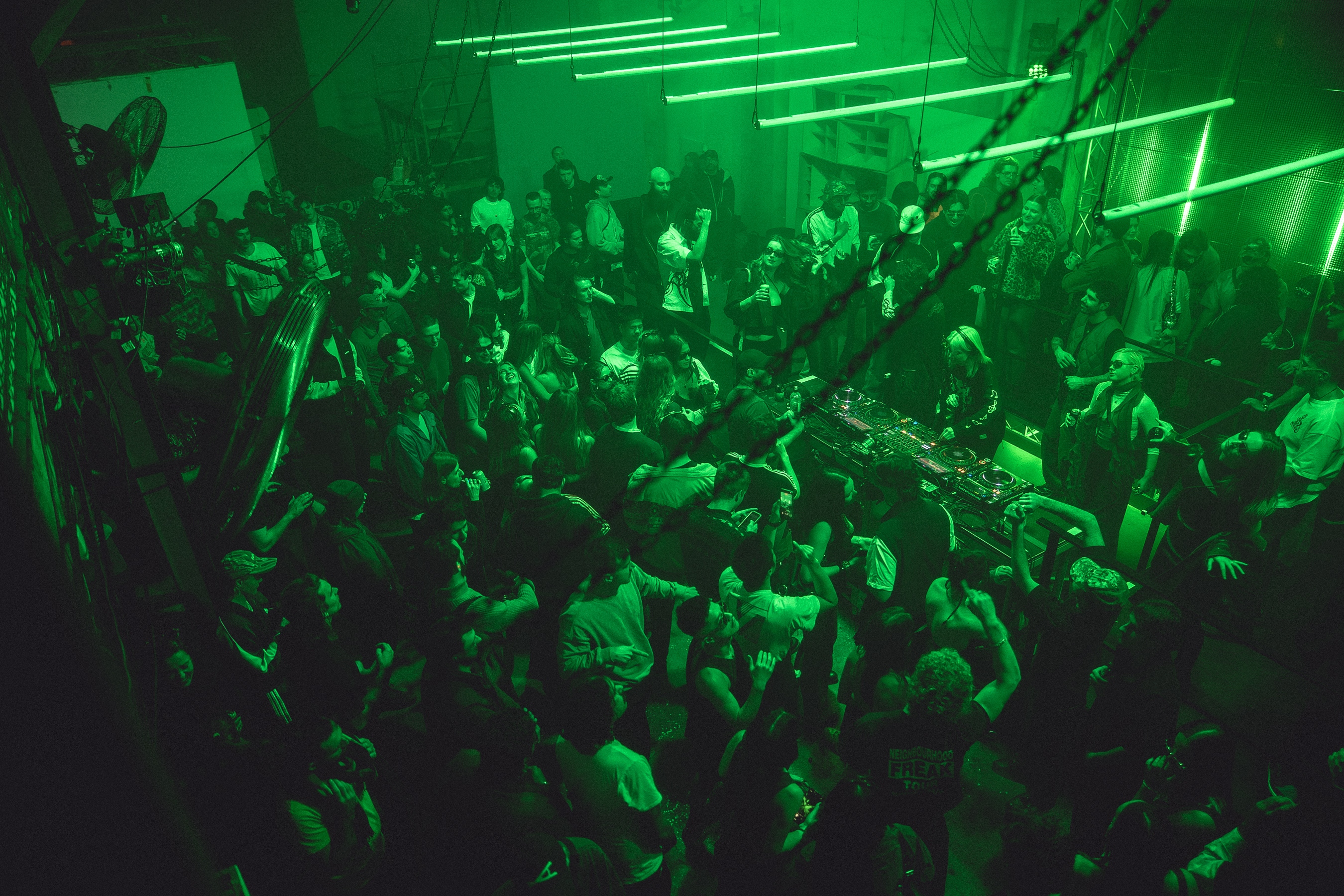
-
Jack Colquhoun is Mixmag ANZ's Managing Editor. Find him on Instagram.


